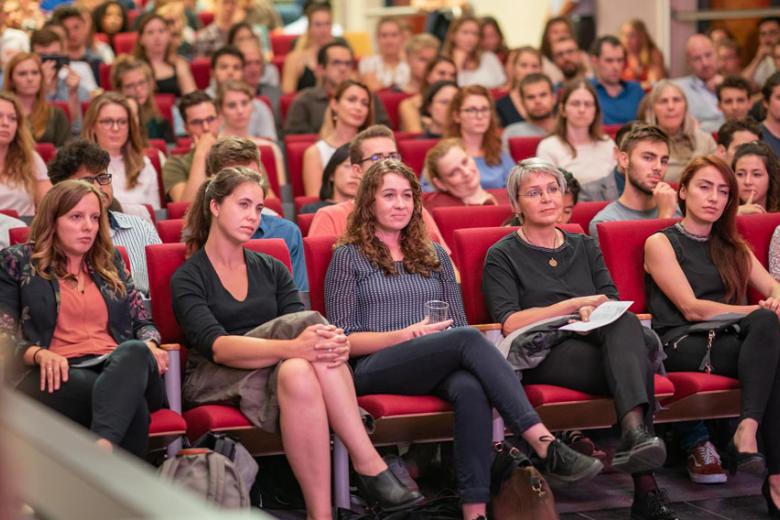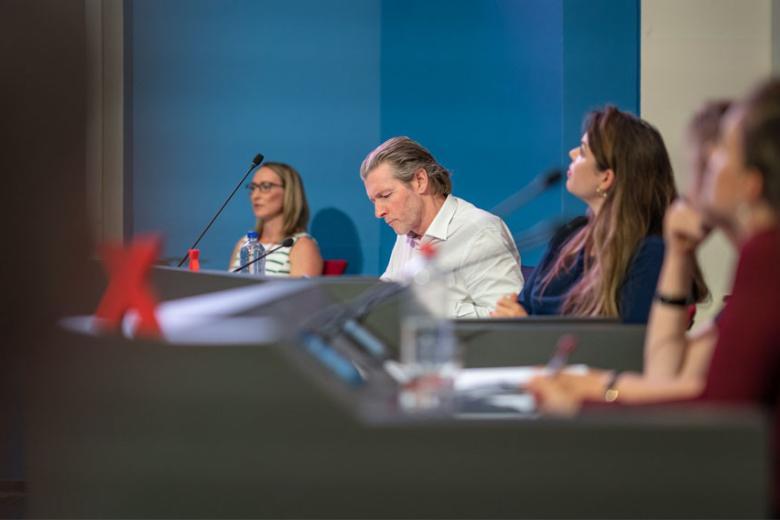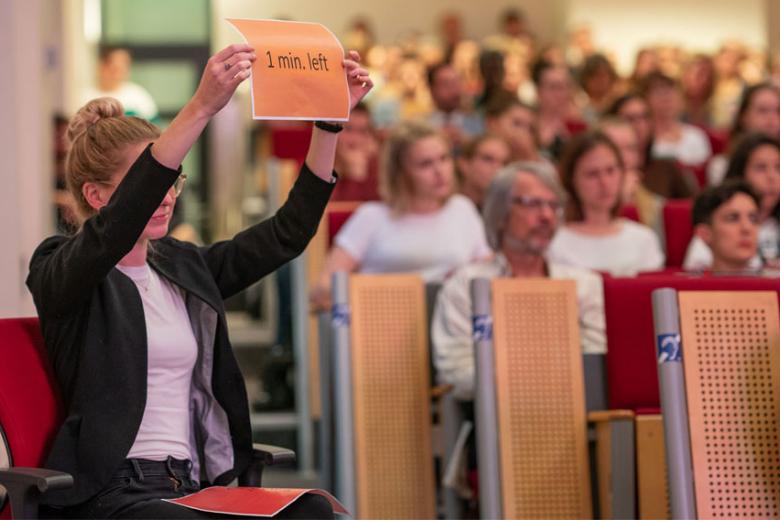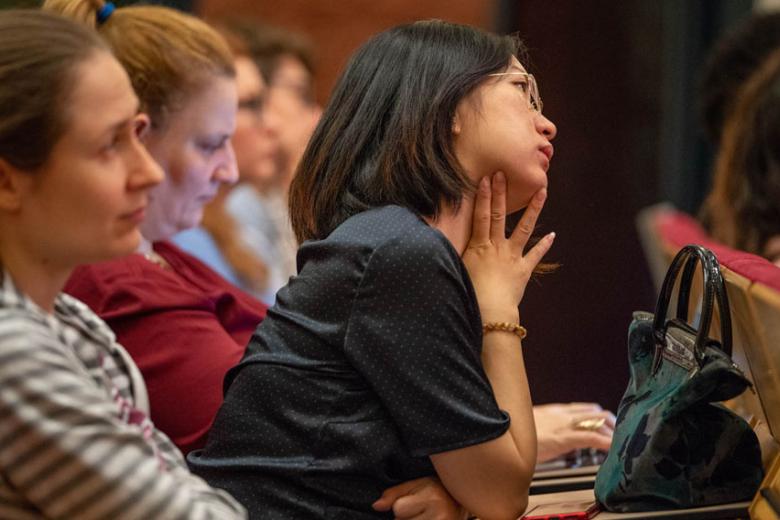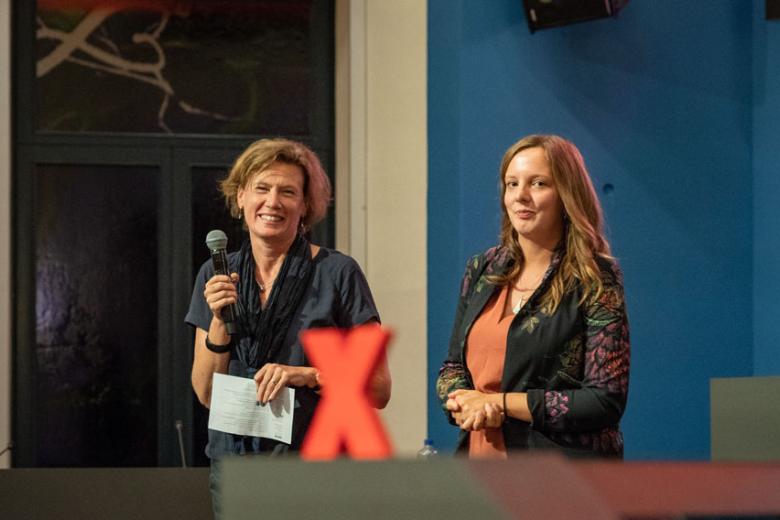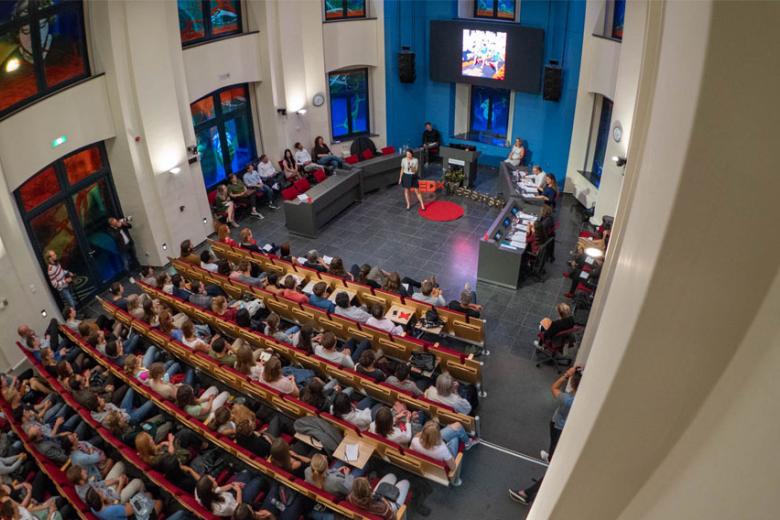Place on TEDx Maastricht podium for first-ever winner PhD Pitch Night
"Why are you an expat and I'm a criminal?" That was the title of Nadine Blankvoort's short presentation at the first PhD Pitch Night organised by Maastricht University. On 12 September, in front of a packed auditorium, 18 PhD students competed for a podium at the official TEDx Maastricht event to be held on 12 October. With her appealing presentation style and intriguing subject matter, Blankvoort won.
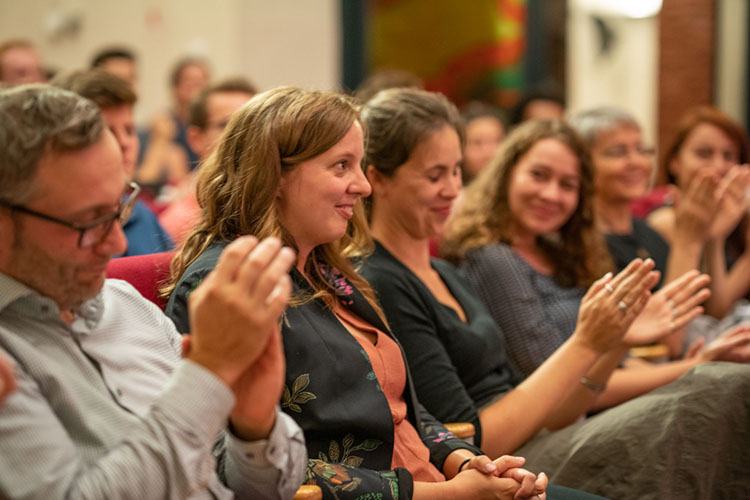
Blankvoort’s PhD project
Originally an occupational therapist, Nadine Blankvoort teaches at the Amsterdam University of Applied Sciences (HvA) and has worked for the UM Master's degree Global Health. She has been working for six months on a dissertation at UM on integration programmes for refugees in the Netherlands. She investigates how integration is described in pamphlets, textbooks, tests and websites within the integration programme for refugees. "What kind of discourse do we use? What messages do refugees get about what they have to do to be accepted and when are they considered 'good refugees'? What kind of influence does this have on their lives in the Netherlands? "
The importance of word choice
Blankvoort discovered that some of Dutch society’s expectations are quite explicit (you have find work as quickly as possible), but some are less clear. "I analysed a brochure from the Dutch government about what is expected during the integration process – the word 'pay' was the most common: fifteen times in a five-page text. Fourteen times 'you have to prove' and thirteen times 'you have to take a test'. That illustrates the discourse within which we approach these people and what we expect from them."
How the pitch title came about
Raised in Canada as the daughter of Dutch parents, she also has some personal experience with migration rules. For this research (and also before that) she has been working with refugees, thence the title of her pitch: "Why are you an expat and I'm a criminal? a refugee once asked me. I am interested in groups that are outside of society and refugees in the Netherlands are perhaps the most obvious example of this. However much they want to participate in society, they are restrained by the rules. "
Coming up with solutions together
Blankvoort finds it very important to present her research beyond the scientific context. "And for that, TEDx is of course an excellent stage. I would like my research to bring about policy change, and this subject is very suitable to a wider debate. We as a society have to come up with solutions together and then also implement them."
This is what the jury thought
The jury was impressed by the level of all eighteen presentations "both in terms of English language and presentation skills as well as confidence," says Gonny Willems, one of the jury members. "Nadine Blankvoort engaged the audience very well with her story and also conveyed a clear message: Think carefully about your choice of words when it comes to migration and refugees." On 12 October, she can expand the talk from three to six minutes.
Een fotoverslag
Also read
-
Empowering Smallholder Farmers in the Data Economy: Unlocking Opportunities and Overcoming Obstacles
Frederik Claasen, the head of policy at our partner organisation Solidaridad Network on the opportunities and obstacles facing smallholder farmers in their data ecosystems.
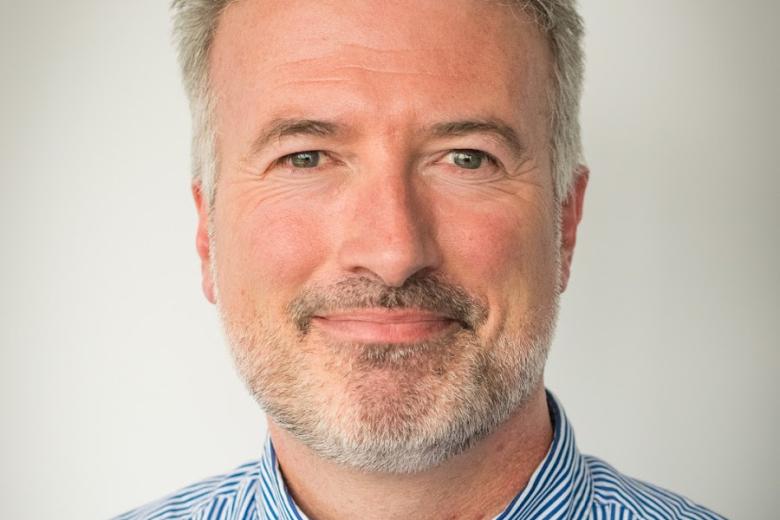
-
Soft landing in Vienna
After several rocky years, Maastricht University alum Lea Vink has found her feet in Vienna. Professionally, she is taking new steps at the crossroads of aviation and organisational psychology. And on a personal level, luck has smiled on her since her transition from man to woman.
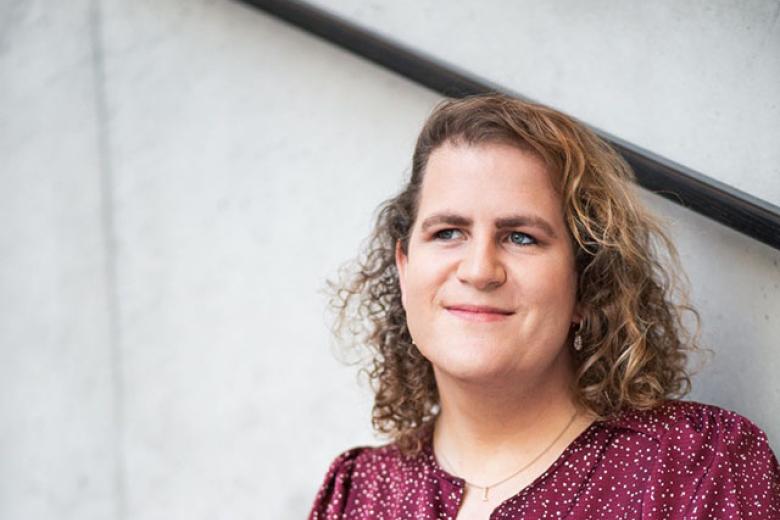
-
Machines that can improvise
Computers are already capable of making independent decisions in familiar situations. But can they also apply knowledge to new facts? Mark Winands, the new professor of Machine Reasoning at the Department of Advanced Computing Sciences, develops computer programs that behave as rational agents.

